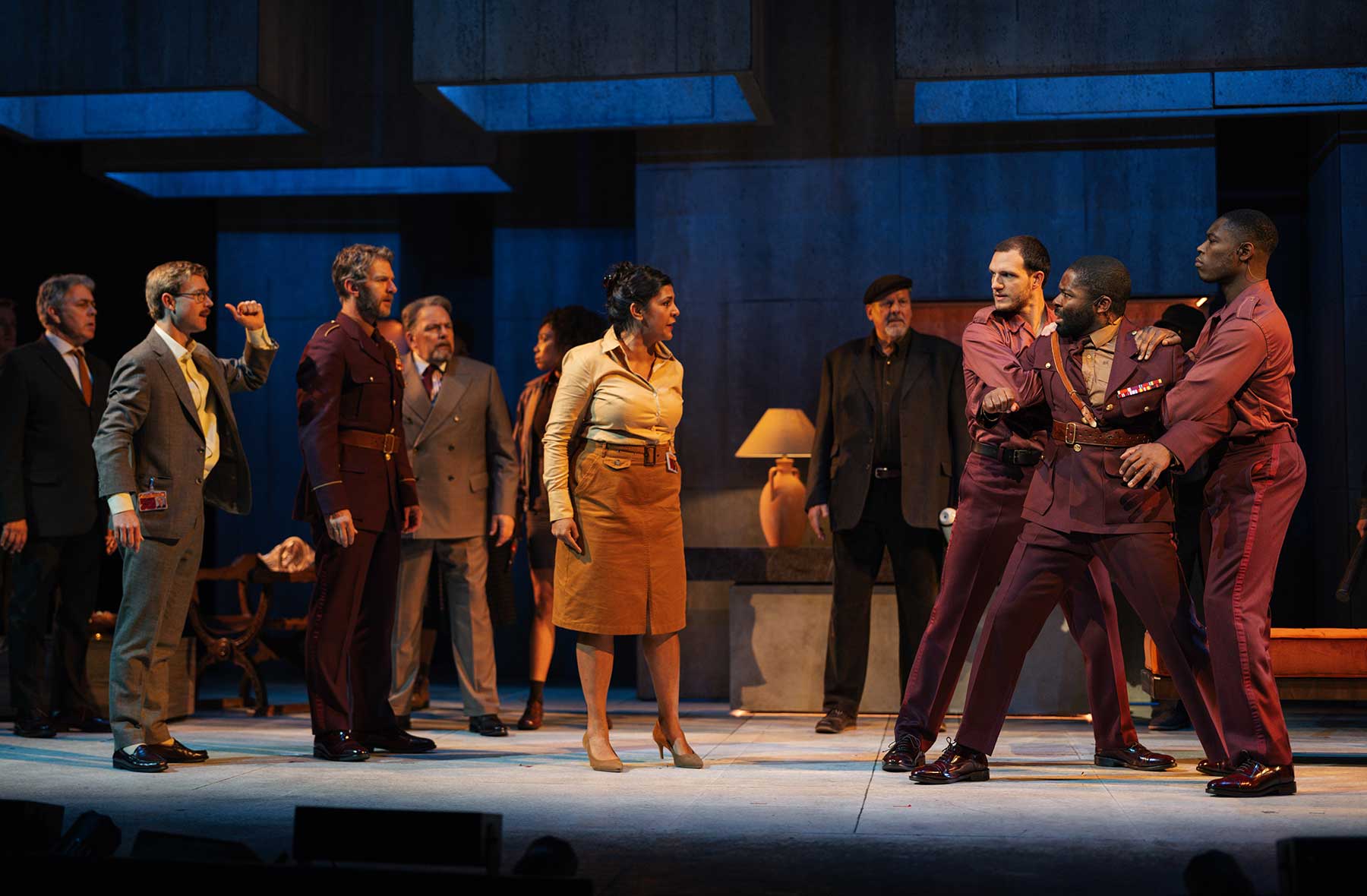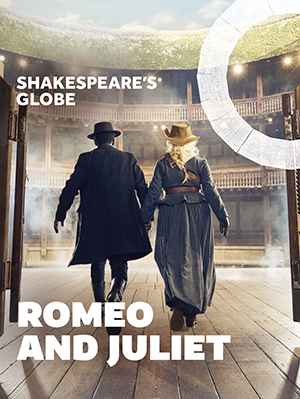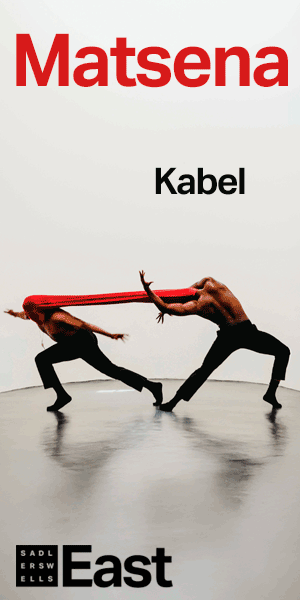
William Shakespeare’s Coriolanus is a complex and often challenging tragedy that explores the destructive power of pride and ambition. The play follows the rise and fall of Caius Marcius, later known as Coriolanus, a renowned Roman general whose arrogance and uncompromising nature lead to his downfall.
Its themes of ambition, class conflict and betrayal remain relevant today but the play’s dense language and intricate political manoeuvrings are not always easy to navigate. While Coriolanus offers a rewarding experience for those willing to engage with its complexities, it will be a challenging watch for some.
This National Theatre production, set in ancient Rome but performed in modern dress, begins in what appears to be a museum, with Roman sculptures, vases and other artefacts placed on plinths dotted around the stage. Everything is grey and the scene has a sombre tension. There are protesters, dressed in subdued tones with some flashes of colour, mainly maroon and brown, and they graffiti one of the sculptures with red spray paint. Coriolanus appears dressed in a reddish-brown velvet dinner jacket, holding a champagne glass. He appears to be part of an elite group and has little time for the Plebians, the lower social classes.
He joins the war against the Volscian army; the colours are again solemn, and he is a fierce and determined warrior who shrugs off battle injuries to fight on until victory is achieved. He emerges from war, now dressed in a smart maroon military uniform to be hailed a hero by the commander of the Roman army. His formidable mother, Volumnia, in a maroon and brown dress, persuades him to run for consul and despite initial reservations, he is a loyal son and takes her advice and gains the position. His self-belief and determination, assets on the battlefield, seem more like arrogance and obstinacy in the political arena which leads to opposition and unrest among the wider population.
Central to this production is David Oyelowo’s powerful and richly layered portrayal of Coriolanus, in which he vividly embodies the character’s courageous heroism and tragic shortcomings with a raw intensity that is captivating and, at times, unsettling. He is supported by a strong ensemble cast that brings passion and nuance to Shakespeare’s tragedy. Pamela Nomvete shines as Volumnia, Coriolanus’s fiercely loyal mother, whose love and ambition for her son are ultimately unable to prevent his downfall.
Peter Forbes is excellent as Menenius, a wise and experienced statesman who tries in vain to mediate between Coriolanus and the Plebeians, represented by Brutus (Jordan Metcalf) and Sicinius (Stephanie Street). They are an entertaining double act who inject a touch of humour into proceedings while they scheme to defeat Coriolanus and have him banished from Rome where he teams up with Aufidius, played by Kobna Holdbrook-Smith, who brings depth and gravitas to his role.
The direction by Lyndsey Turner is both daring and creative. Her meticulous attention to detail results in visually stunning staging that makes excellent use of the National Theatre’s large Olivier stage. Es Devlin’s set design switches between a dingy museum of ancient Rome to modern interiors that wouldn’t look out of place in an extravagant home featured in the television series Grand Designs. Large blocks rise and descend from above to achieve the transitions and these double as screens on which scenes of the action are projected. Another standout feature of the show is Annemarie Woods’ stunning costume design, which uses a limited palette of colours (mainly browns and maroons for large parts of the play, and shades of green toward the end) which adds cohesion and interest to the action played out on stage.
This ambitious and imaginative production largely succeeds in making Shakespeare’s complex text accessible to a wide audience. The exhilarating fight scenes, a blend of rapid aggression and balletic slow motion, are particularly captivating. The performances are top-notch and the staging is striking. However, the play’s intricate exploration of political and social themes, such as class conflict, war, and power struggles, can be challenging, even in modern contexts. The archaic language and unfamiliar vocabulary add an extra layer of complexity which may make it a demanding watch for some but ultimately, it is worth the effort.
Need to know: Coriolanus plays at the National Theatre until 9 Nov 2024






























